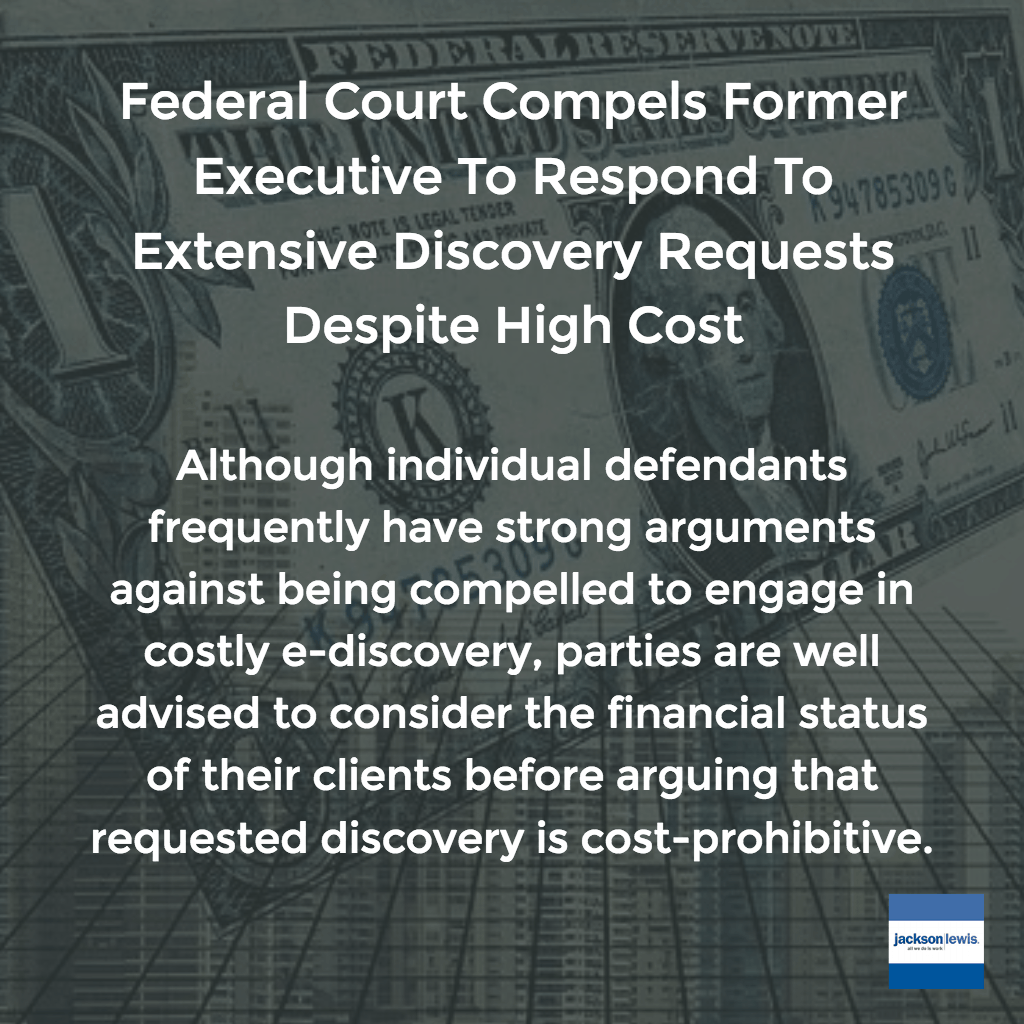ARCHIVED CONTENT
You are viewing ARCHIVED CONTENT released online between 1 April 2010 and 24 August 2018 or content that has been selectively archived and is no longer active. Content in this archive is NOT UPDATED, and links may not function.
Extract from article by Stephen R. Beiting and Brett M. AndersA federal court in Pennsylvania recently ordered a former executive to respond to costly and expansive discovery requests in a case where the former executive allegedly set up a competing business in violation of his employment agreement. Although responding to the discovery was expected to be a costly endeavor, the Court in First Niagara Risk Management, Inc. v. John A. Folino (E.D. Penn. August 11, 2016) nevertheless rejected the defendant’s financial hardship argument based on the fact that he recently received $5 million for the sale of two companies to the plaintiff.
In this case, Folino began working for First Niagara in 2010 as its First Vice-President and Regional Director of Insurance for Western Pennsylvania after First Niagara paid Folino $5 million for the assets of the two business Folino owned. As part of that sale, Folino signed an employment agreement containing non-solicitation and non-competition provisions that prevented him from competing with First Niagara. Despite this agreement, First Niagara alleged that while working for First Niagara in 2015, Folino began working with another First Niagara employee to set up a business that directly competed with First Niagara.






















